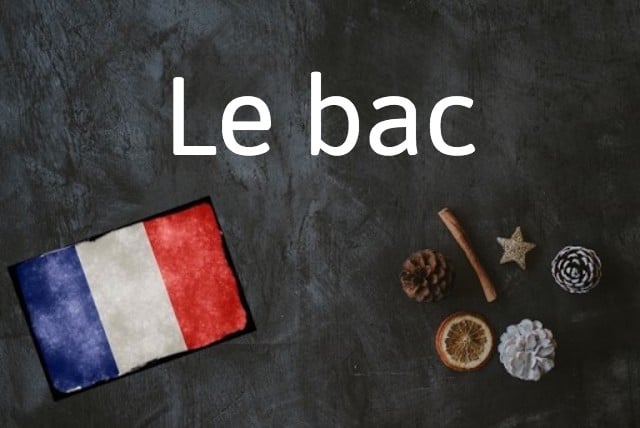Why do I need to know le bac?
Because it's the most important event in any high schooler's (academic) life here in France.
What does it mean?
Le bac is short for le baccalauréat, which is the name of the French final exams in high school.
Le bac is a big deal in France. Lycéens (high schoolers) study night and day to prepare for a series of exams on every single subject they have studied. Most of the exams are held at the end of terminale (senior year), but a couple – like French – are at the end of première (second year).
Avoir le bac translates to ‘having le bac’ and means that you passed the package test.
Pour avoir le bac, il faut obtenir une moyenne de 10 minimum – In order to get le bac, you need a minimum average of 10 (of the total tests).
France uses a grading scheme that spans from 0 to 20, where everything below 10 means you failed. While a good grade can weigh up for a bad grade when calculating la moyenne du bac (your average grade of le bac), some grades count more than others.
If your overall result amounts to less than 10, that blows your chances of getting admitted to university out of the water.
No bac as usual this year
Everyone is talking about le bac in France today, after Education Minister Jean-Michel Blanquer acknowledged that, because of the coronavirus crisis, le bac could not be held in its usual form this year.
Since the beginning of the lockdown on March 17th many have doubted that the government would manage to go ahead with le bac as planned. Worried parents have also said their children were unable to properly prepare for it without normal access to their teachers and other school resources.
The roughly 740,000 senior year high schoolers in France will therefore see their final notes (grades) largely based on previous efforts – a tough blow for those who had already studied hard for the final exams.
Use le bac like this
J’ai eu le bac ! – I passed the bac!
You can ask a graduated high schooler
Tu as reussi ton bac ? – Did you pass the bac?
Or (even more commonly used)
Tu as eu ton bac ? Did you get the bac?
Tu as eu quelle mention? – What did get as feedback?
Heureusement j'ai eu une bonne note en histoire pour rattraper ma salle note de français – Luckily I got a good grade in history to make up for my horrible French grade.



 Please whitelist us to continue reading.
Please whitelist us to continue reading.
Member comments